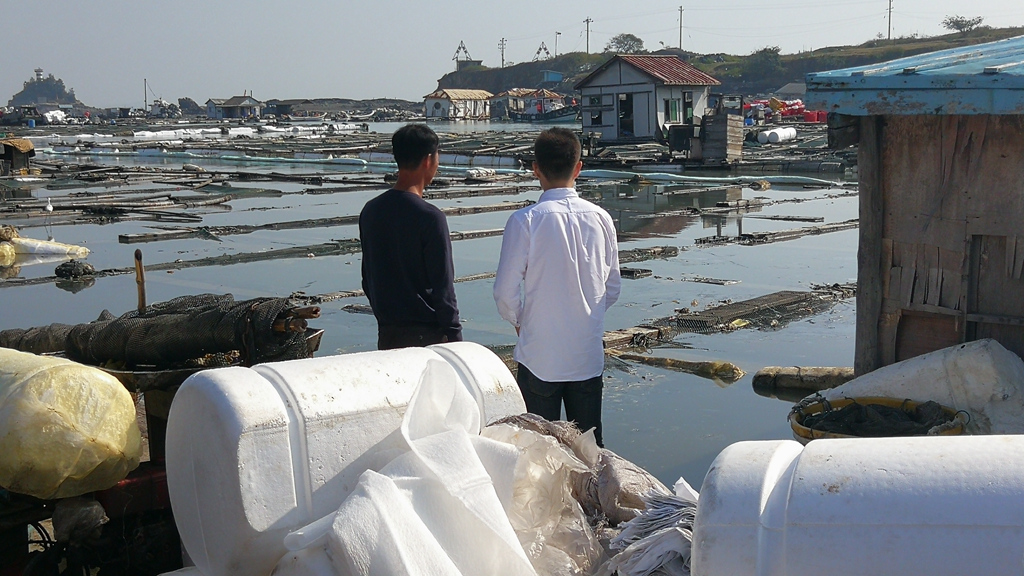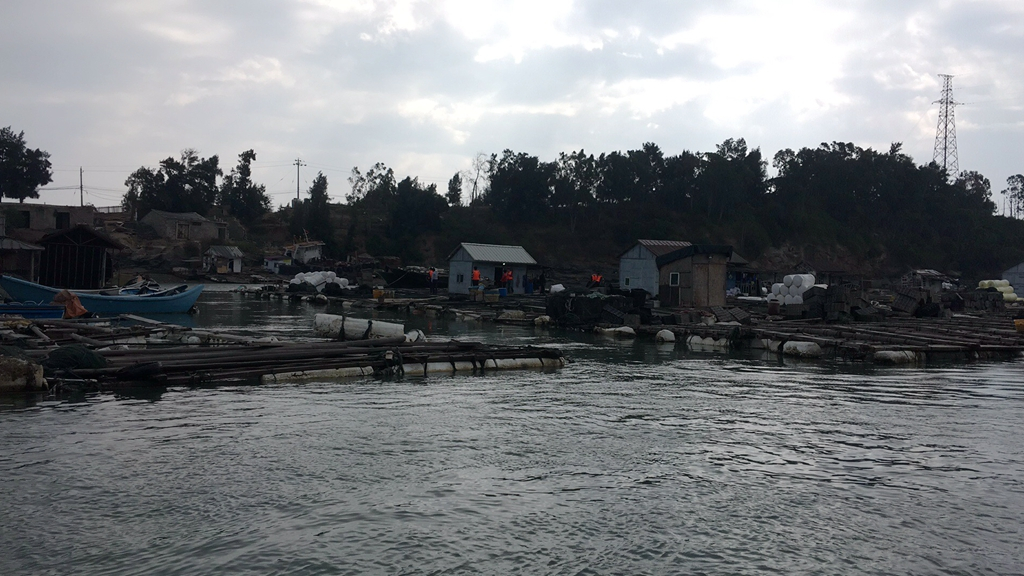
Enviro
20:24, 11-Nov-2018
A 'nuclear winter' awaits fishermen in SE China
Updated
19:32, 14-Nov-2018
By Xu Xinchen, Wang Yao
01:57

Xiao Jianxin has spent his entire life fishing in Xiaocuo village. Like his peers, fishing is his biggest source of income. However, after nearly seven tons of C9 aromatic hydrocarbons leaked into surrounding waters a week ago, his farm has been wiped out. Xiao says over 100 tons of his fish have been affected – some escaped, some died and the rest are contaminated. What he is facing now is the prospect of zero income for the year.
“For those contaminated fish, we hope that the relevant authorities can buy them back and dispose of them if necessary,” said Xiao.
Luckily, the local government has been registering farmers' damages and rebuilding the fish farms. The Donggang Petrochemical Industry Company has also apologized for the spill and promises to compensate.
Ninety-nine fish farmers in the village have reported losses. Yet, more evaluations are still needed for any compensation to be paid out.
Since the spill, market regulators have banned people from catching, selling and eating fish from Xiaocuo village. However, the fear among local residents is affecting seafood markets across the region.
“After the chemical leak, no matter where we get our seafood – from Guangdong and other regions in Fujian, people are still scared and will not buy,” a local seafood retailer, Zhuang Jinghui told CGTN.
And the district market regulators said that the ban will remain active until further notices from marine fishing authorities are provided.
Samples from the contaminated water have been taken but it could take at least three weeks before results come back. With 65 percent of households here relying on fishing, this winter in Xiaocuo village – despite its mild temperature – could be tougher than ever.
02:10

Recap of the chemical spill – worst in the region
On November 4, 6.97 tons of C9 aromatic hydrocarbons were leaked from a petrochemical company in the Chinese port city of Quanzhou. The spill was said to be caused by a deteriorating pipe transforming the chemical. A terrible diesel smell and oil-like residue floating on the sea water alerted local fishermen right away. Experts say it could take at least a month for the water to freshen up and rid itself of chemicals.
The toxins have corroded fishing equipment, and sent dozens of people to hospital. Most of them have checked out, but doctors advise they pay close attention to any discomfort.
Some argue that the petrochemical company is too close to residential areas. The local government plans to move all residents from 17 villages away from petrochemical company sites by 2020. Still, 30 percent of them have yet to move.

SITEMAP
Copyright © 2018 CGTN. Beijing ICP prepared NO.16065310-3
Copyright © 2018 CGTN. Beijing ICP prepared NO.16065310-3